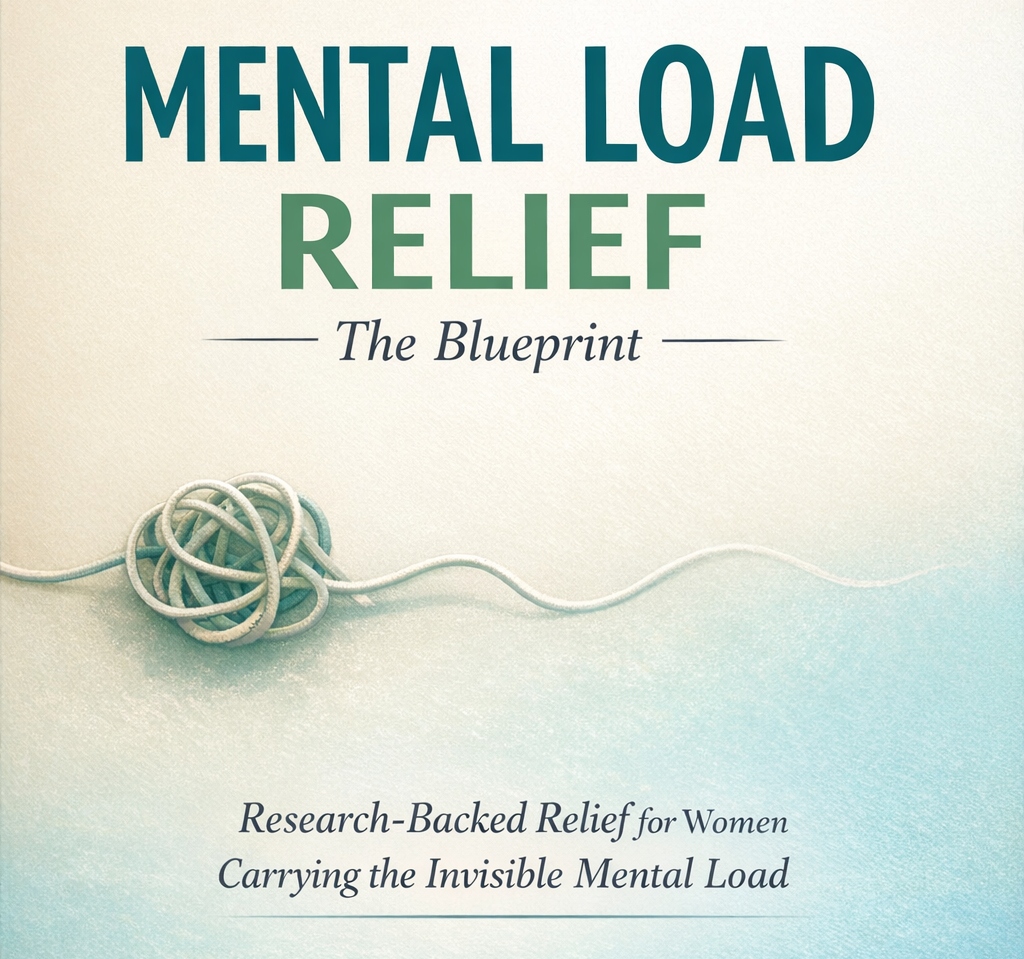
Stay Happy Job You Hate Planning Exit: The Secret Strategy That Actually Works
The Monday Morning Dread That Changed Everything
Delores stared at her alarm clock, feeling that familiar knot in her stomach. Another Monday. Another week at a job that drained her soul. As a 34-year-old marketing manager, she had bills to pay and a family to support, but every day felt like she was slowly suffocating in corporate quicksand.
Sound familiar? If you're reading this, you're probably struggling with the same challenge: how to stay happy job you hate planning exit without losing your sanity in the process.
What Delores discovered—and what thousands of others have learned—is that you don't have to choose between financial stability and mental well-being. There's a strategic approach that allows you to maintain your happiness while systematically building your path to freedom.
Why Most People Stay Miserable (And How You Can Be Different)
Recent workplace research from Gallup reveals that 76% of employees experience workplace burnout, yet only 32% actively plan their career transitions. The gap between suffering and action exists because most people believe they have only two options: quit immediately or endure indefinitely.
The truth is, you can stay happy job you hate planning exit by implementing what psychologists call "strategic reframing" combined with "future-focused action planning."
The Hidden Cost of Workplace Misery
Dr. Christina Maslach's groundbreaking research on occupational burnout shows that staying in a toxic work environment without an action plan creates:
- Chronic stress responses that impact physical health
- Decreased cognitive function and creativity
- Relationship strain due to emotional spillover
- Financial decisions made from desperation rather than strategy
But here's what changed everything for Delores and can change everything for you.
The H.A.P.P.Y. Framework: Your Strategic Survival Guide
To effectively stay happy job you hate planning exit, you need a systematic approach. The H.A.P.P.Y. framework provides exactly that:
H - Harbor your energy strategically
A - Activate your exit plan
P - Protect your mental space
P - Pursue growth opportunities
Y - Yield positive relationships
Harbor Your Energy Strategically
The first step to stay happy job you hate planning exit is understanding that your energy is finite and precious. Instead of pouring everything into a job that doesn't fulfill you, harbor your best energy for what matters most.
Morning Energy Allocation Strategy:
- Reserve your peak hours (typically first 2-3 hours of your day) for exit-plan activities
- Use medium energy for essential job tasks
- Save low energy for routine work functions
Maria, a software developer, implemented this strategy by waking up 90 minutes earlier to work on her freelance projects. "I stopped trying to be the star employee at a company that didn't value me," she explains. "Instead, I became strategic about where I invested my best self."
Activate Your Exit Plan
The psychology of hope suggests that having a concrete plan dramatically improves your ability to tolerate temporary discomfort. When you stay happy job you hate planning exit, you're essentially creating a bridge between your current reality and your desired future.
The 90-Day Exit Activation Plan:
Days 1-30: Assessment and Foundation
- Complete skills inventory and market research
- Update LinkedIn profile and resume
- Establish networking schedule (3 new connections weekly)
- Set up separate "exit fund" savings account
Days 31-60: Active Searching
- Apply to 5 positions weekly that align with your goals
- Schedule informational interviews in target companies
- Begin freelance or side projects in desired field
- Connect with recruiters in your industry
Days 61-90: Optimization and Selection
- Refine job search based on response patterns
- Practice interview skills with mock sessions
- Negotiate current role improvements (if valuable for transition)
- Make final decision on best exit opportunity
Protect Your Mental Space
Research from the American Psychological Association shows that employees who maintain psychological boundaries report 43% higher job satisfaction, even in challenging roles. To stay happy job you hate planning exit, you must become an expert at mental space protection.
Boundary Setting Strategies:
- Create physical rituals that separate work from personal time
- Develop neutral responses to workplace drama
- Practice the "gray rock" method with difficult colleagues
- Establish non-negotiable personal time for restoration
The Power of Perspective Shifting: Instead of thinking "I'm trapped here," reframe to "I'm strategically positioned while building my exit." This simple shift in language creates what cognitive behavioral therapy calls "solution-focused thinking."
Pursue Growth Opportunities (Selectively)
Here's the paradox: sometimes the best way to stay happy job you hate planning exit is to temporarily engage more strategically with your current role. But this engagement must serve YOUR agenda, not just your employer's.
Strategic Growth Selection:
- Choose projects that build transferable skills
- Volunteer for training that enhances your market value
- Network internally with people who might become external references
- Document achievements that strengthen your resume
According to recent workplace studies, employees who view their current role as "strategic skill development" rather than "permanent career placement" report 38% lower stress levels and faster career transitions.
Yield Positive Relationships
The final component to stay happy job you hate planning exit involves cultivating relationships that support your journey. Not all workplace relationships are worth maintaining, but some can become valuable parts of your professional network.
Relationship Strategy Assessment:
- Nurture: Colleagues who are supportive and professionally connected
- Neutral: People who are pleasant but not strategically important
- Minimize: Energy-draining individuals who don't serve your goals
Real-Life Success Stories: The Strategy in Action
James, 29, Financial Analyst: "I used to complain about my toxic manager daily. Then I started viewing my job as 'strategy development boot camp.' I learned to stay happy job you hate planning exit by focusing on building financial modeling skills that would transfer to my dream job in venture capital. Eight months later, I landed a role with 40% higher pay."
Rebecca, 41, HR Director: "As a single mom, I couldn't just quit. The H.A.P.P.Y. framework helped me realize I could be strategic. I used my HR connections to understand what other companies wanted, built those skills on company time through internal projects, and networked professionally. My exit took 14 months, but I moved to a role I love with better work-life balance."
The Science Behind Strategic Job Satisfaction
Occupational psychology research confirms that people who stay happy job you hate planning exit actually perform better in their current roles than those who remain passive or constantly complain. This phenomenon, called "approach motivation," occurs because:
- Future-focused thinking reduces rumination on current problems
- Strategic behavior creates a sense of control and agency
- Skill building provides intrinsic motivation regardless of environment
- Timeline awareness makes temporary discomfort more tolerable
A 2024 study published in the Journal of Vocational Behavior found that employees who actively planned career transitions while remaining in challenging roles showed 52% better stress management compared to those who remained passive.
Advanced Strategies for Difficult Situations
When You Have a Toxic Boss
The key to stay happy job you hate planning exit with a problematic manager is strategic disengagement. Document everything, minimize one-on-one interactions, and focus on relationships with peers and other departments. Your toxic boss becomes irrelevant when you view them as temporary rather than permanent.
Financial Constraints
Recent financial planning research suggests that even saving $50 monthly toward an "exit fund" dramatically improves your psychological sense of freedom. The goal isn't to save enough to quit tomorrow, but to build enough runway to make strategic rather than desperate decisions.
Industry-Specific Challenges
Different industries require different exit strategies. Tech workers might build portfolios through side projects, while teachers might pursue additional certifications during summers. The principle remains constant: stay happy job you hate planning exit by aligning your current situation with your future goals.
Common Obstacles and Solutions
"I Don't Have Time for Job Searching"
Solution: Implement the "15-minute rule." Spend just 15 minutes each morning on exit-plan activities. This could be updating one section of your resume, sending one networking message, or researching one potential employer. Small, consistent actions compound over time.
"I Feel Guilty About Not Being Fully Committed"
Solution: Remember that employee loyalty is a two-way street. Companies make strategic decisions about their workforce constantly. You're simply making strategic decisions about your career. To effectively stay happy job you hate planning exit, release guilt about prioritizing your own professional development.
"What If My Current Employer Finds Out?"
Solution: Professional job searching is normal career development. Maintain discretion, but don't let fear paralyze you. Most employers understand that talented people have options and may even respect your proactive approach to career management.
Building Your Support System
Professional Network Development
Career transition research indicates that 85% of successful job changes happen through networking rather than online applications. To stay happy job you hate planning exit, you must systematically build relationships outside your current organization.
Weekly Networking Goals:
- Connect with 2 new LinkedIn contacts in your target industry
- Send 1 follow-up message to existing professional contacts
- Participate in 1 online industry discussion or forum
- Schedule 1 informational interview or coffee meeting monthly
Personal Support Team
Mental health research from 2024 shows that people with strong support systems navigate career transitions 34% more successfully. Your personal team should include:
- Accountability partner: Someone who checks on your progress weekly
- Industry mentor: Professional who can provide field-specific guidance
- Emotional support: Friend or family member who listens without judgment
- Financial advisor: Professional who helps optimize your transition timeline
The Long-Term Vision: Life After the Exit
The ultimate goal of learning to stay happy job you hate planning exit isn't just escape—it's strategic career progression. People who approach job transitions systematically rather than reactively typically see:
- 25-35% salary increases in their next role
- Higher job satisfaction scores
- Faster progression to leadership positions
- Better work-life balance
- Increased confidence in future career decisions
Your Next Steps: Implementation Strategy
Week 1-2: Foundation Building
- Complete the honest assessment of your current situation
- Define your ideal next role in specific terms
- Set up your separate exit fund account
- Update your LinkedIn profile with strategic improvements
Week 3-4: Plan Activation
- Begin networking outreach (start with 3 people)
- Research 10 companies in your target field
- Update resume with recent achievements
- Schedule your first informational interview
Month 2-3: Momentum Building
- Apply to 2-3 positions weekly
- Continue networking expansion
- Work on skill development that supports your transition
- Track metrics: applications sent, responses received, interviews scheduled
Remember, the goal is to stay happy job you hate planning exit by maintaining hope, taking action, and building momentum toward your ideal career situation.
Conclusion: Your Strategic Career Transformation
The journey to stay happy job you hate planning exit isn't about enduring misery—it's about strategic transformation. By implementing the H.A.P.P.Y. framework, you create a bridge between where you are and where you want to be.
Delores, the marketing manager from our opening story, successfully transitioned to a role she loves at a company that values her contributions. Her secret wasn't suffering in silence or making impulsive decisions. Instead, she learned to stay happy job you hate planning exit through strategic action, systematic planning, and psychological reframing.
Your current job doesn't have to define you, but it can serve you if you approach it strategically. Every skill you build, every relationship you cultivate, and every day you maintain your well-being while planning your exit is an investment in your future success.
The question isn't whether you can escape your current situation—it's whether you're ready to do it strategically. Your future self is counting on the decisions you make today. Start implementing these strategies now, and begin your transformation from surviving your job to thriving in your career.
Take Action Today: Choose one element from the H.A.P.P.Y. framework and implement it this week. Your strategic exit plan begins with a single step, and that step starts now.

Instant delivery • No credit card required • Unsubscribe anytime
If You're Exhausted Even on Easy Days, The Mental Load Relief Blueprint Shows You How to Finally Feel Lighter
Download the free guide that women drowning in invisible labor are using to reclaim 2+ hours of mental space daily - without waiting for anyone else to notice how much you're carrying.
You're Not Lazy - You're Overloaded With Mental Labor
Research shows women make 35,000 decisions daily while managing invisible work that nobody else sees. Here's what that mental juggling actually looks like...
You're the Only One Who Remembers Everything
Tracking doctor appointments, school events, grocery needs, everyone's schedules - that mental tab running 24/7 creates real cognitive exhaustion. Studies show invisible labor causes 40% more mental fatigue than visible tasks.
Making 100+ Decisions While Everyone Else Just... Lives
What's for dinner? Who needs what tomorrow? Did anyone handle that thing? You're making all these micro-decisions while managing everyone's needs - and research shows this decision fatigue is stealing your energy and clarity.
Carrying Everyone's Emotional Load
Their schedules, worries, needs, moods - you're holding it all while they move through life unburdened. Data shows this emotional carrying costs women 700+ hours annually in unpaid mental labor nobody recognizes.
Your Brain Won't Turn Off at Night
Even when you're exhausted, your mind replays tomorrow's logistics and worries about what you forgot. Studies confirm mental load directly disrupts sleep quality - creating a cycle you can't break alone.
You're Everyone's Default Everything
They come to you first for every problem, question, and decision. You coordinate, plan, remember, solve - the invisible work keeping everything running. Research shows being the default parent/partner/planner is a primary predictor of burnout.
Self-Care Tips Don't Account for Your Reality
"Just take a bath" and "practice self-care" ignore that you're managing everyone else's life first. You can't remember when you last had mental space just to breathe. Generic advice was never designed for invisible labor.
The Mental Load Relief Blueprint: Your Path to Feeling Lighter
This isn't another collection of "just say no" tips that ignore your reality. These are research-backed strategies designed specifically for women drowning in invisible work - practical relief that actually fits your life.
Understanding Your Mental Load Type
Discover which of the five mental load patterns you're experiencing - from The Drowning Decision-Maker to The Exhausted-And-Guilty-About-It. Research shows personalized strategies work 3x better than generic advice.
The Brain Dump Method That Actually Works
Reduce daily decision load by 40% using cognitive offloading techniques designed for real life. Studies show getting those mental tabs out of your head creates immediate measurable relief.
Sharing Mental Load (Not Just Tasks)
Specific strategies for distributing invisible labor without becoming the manager of the management. Evidence shows even small shifts in mental load distribution create noticeable relief.
Decision Fatigue Relief Protocol
Eliminate unnecessary decision points and automate your cognitive load. Research confirms that reducing daily decisions by just 20 items significantly improves mental clarity and energy.
Boundary Scripts for Real Situations
Actual word-for-word phrases for setting boundaries without guilt or conflict. Data shows just one consistent boundary reduces overwhelm and stops you from being everyone's automatic default.
Stopping the Bedtime Worry Spiral
Cut nighttime mental rumination from 45 minutes to under 5 minutes using the Worry Window Technique. Penn State research shows this approach reduces bedtime anxiety by 35% in two weeks.
The Permission You've Been Waiting For
Stop waiting for someone to notice your invisible work before you get relief. Research shows self-validation is the first step to lightening your mental load - without needing external acknowledgment.
Grounded in Research on Mental Load and Invisible Labor
Every strategy in The Mental Load Relief Blueprint is backed by peer-reviewed studies on cognitive overload, emotional labor, and decision fatigue - not trendy wellness advice that ignores your reality.
Research-Backed Relief for Women Carrying Invisible Labor
I'm Herb, founder of Happy Mind Courses. For over a decade, I've researched the psychology of mental overwhelm, decision fatigue, and cognitive load - specifically studying what creates measurable relief for women managing multiple responsibilities and invisible labor nobody else sees.
The Mental Load Relief Blueprint isn't based on personal anecdotes or trendy wellness theories. Every strategy is grounded in peer-reviewed research on invisible labor, decision fatigue, and cognitive overload from leading psychology journals and clinical studies.
These are the same evidence-based techniques that women are using right now to finally get relief from the mental load nobody acknowledges - and reclaim the mental space they deserve without waiting for anyone else to step up.
Get Your Free Mental Load Relief Blueprint Today
Stop carrying everyone's invisible labor alone. Download the complete guide with evidence-based strategies for reducing decision fatigue, sharing mental load, and finally feeling lighter.
Completely free. No credit card required. Instant PDF download.
Download The Free Guide NowInstant delivery • Your privacy protected • Evidence-based strategies • Unsubscribe anytime



Discover Your Path to a Happier Mind
Mental Load Relief Strategies
Happy And Healthy Relationships
Mental Load in Partnerships
Professional Mental Load
Access 12 Happy Life Secrets Videos
Access Your Mental Wellness Toolkit


